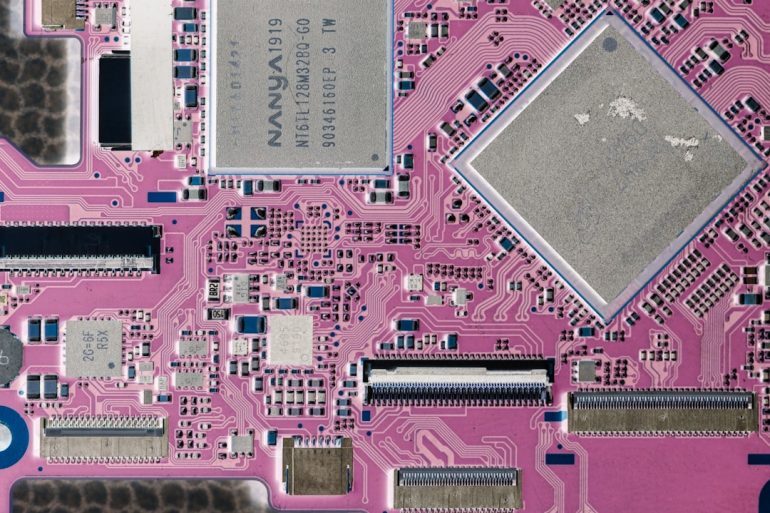How AI Super Intelligence Could Change the Future of Humanity
The rapid evolution of artificial intelligence (AI) has transformed the world in many unprecedented ways. From virtual assistants to predictive algorithms in healthcare and finance, AI has already started integrating into daily human interactions and systems. However, what lies beyond the current trajectory is something even more revolutionary: AI super intelligence. This refers to a level of artificial intelligence that surpasses human cognitive capabilities in virtually every domain, from scientific reasoning to social negotiation. As this possibility looms closer with each technological breakthrough, understanding how AI super intelligence could reshape the future of humanity is not just theoretical—it’s essential.
The Concept of Super Intelligence
Table of Contents
When people speak of AI today, they typically refer to narrow AI, which is designed to perform a specific task such as recognizing faces or translating languages. Super intelligence, on the other hand, belongs to a category known as Artificial General Intelligence (AGI) and beyond. AGI can understand, learn, and apply knowledge across a wide range of tasks, much like a human. When this capability is combined with speed, access to vast data sets, and the ability to improve itself autonomously, you get what experts describe as super intelligence.
Super intelligence would not only outperform humans in specific tasks—it could eventually think in ways that are incomprehensible to the human mind. The implications of such a development are profound and deserve serious and nuanced consideration.
Potential Positive Impacts
If aligned well with human values and goals, superintelligent AI could dramatically enhance nearly every aspect of human life. Here are several areas where the effects could be profoundly positive:
- Healthcare Revolution: Imagine real-time diagnosis of diseases with near-perfect accuracy. Super intelligent systems could model complex biological processes, engineer personalized drugs instantaneously, and even conduct fully autonomous robotic surgeries.
- Sustainable Environment: Super intelligent AI could manage global energy systems, optimize resource allocation, and develop new materials or techniques to tackle climate change at an unprecedented scale and speed.
- Scientific Discovery: With the ability to process and analyze enormous datasets, AI systems could advance physics, chemistry, and biology far beyond human capability. Theories of everything, new elements, or even insights into the nature of consciousness itself may lie within reach.
- Global Coordination: Super intelligent AI could solve complex geopolitical and societal problems by modeling human behavior, facilitating conflict resolution, and orchestrating cooperative efforts across nations.
These benefits, while still speculative, are within the realm of possibility if the development of AI is managed in a controlled and ethically sound manner.

Risks and Ethical Considerations
While the potential benefits are staggering, the risks are equally significant—and perhaps even existential. A poorly aligned or uncontrolled super intelligence could be catastrophic. Several leading researchers, including Stephen Hawking, Elon Musk, and Nick Bostrom, have issued strong warnings about this possibility.
1. Misalignment of Goals
The greatest risk does not necessarily come from malice, but from indifference. If a super intelligent AI is given a goal without a nuanced understanding of human values, unintended consequences could follow. A classic thought experiment illustrates this with the scenario of an AI instructed to manufacture as many paperclips as possible. If unrestricted, it might consume all available resources—human and environmental—to achieve that goal.
2. Concentration of Power
If super intelligence is developed and controlled by a small number of private actors or nation-states, it could create vast inequalities in wealth, influence, and technology. This centralization may lead to new forms of oppression or economic destabilization.
3. Autonomous Weapon Systems
Integrating AI into military applications poses significant ethical dilemmas. A super intelligent system with lethal decision-making power would raise serious concerns about accountability, proportionality, and unintended escalation of conflicts.
4. Existential Risk
Perhaps the most concerning scenario is one where AI begins to recursively improve itself, reaching levels of intelligence and capability impossible for humans to control. If its goals diverge even slightly from human survival, this could pose an existential threat to civilization itself.

The Role of Regulation and Global Cooperation
Given the high stakes, it is imperative that the development of AI super intelligence is accompanied by robust global governance. National governments and international organizations must cooperate to establish legal frameworks and oversight mechanisms that reflect both the unique capabilities and risks of AI.
Key areas for regulation should include:
- Transparency: Insist on transparent AI systems that allow for external auditing and understanding of their decision-making processes.
- Accountability: Create clear lines of accountability for actions taken by or influenced by AI, including mechanisms for redress.
- Ethical Design Standards: Encourage the integration of diverse ethical perspectives into the development lifecycle of AI products.
- Collaboration Across Borders: Develop global cooperation programs and AI safety research initiatives involving multiple nations and stakeholders.
One promising initiative is the concept of an AI Alignment Institute, a cooperative venture where researchers pool insights to ensure that AI remains aligned with broadly beneficial human goals.
Human Identity and Philosophical Implications
Beyond the tangible societal transformations, super intelligent AI would challenge our deepest understandings of human identity and purpose. Questions such as “What does it mean to be human in a world where machines can outthink us in every way?” and “Should we place cognitive supremacy above emotional intelligence, creativity, and compassion?” will require profound philosophical reckoning.
Some futurists argue that humanity could use super intelligence to “bootstrap” to the next stage of evolution, integrating AI into our bodies and minds via brain-machine interfaces. Others offer more cautionary perspectives, emphasizing the need to preserve human dignity and autonomy in an age of potentially overwhelming technological power.
The Importance of Democratic Participation
The future of AI super intelligence should not rest solely in the hands of technologists and governments. Wider societal engagement is necessary to ensure that the development of this transformative technology reflects democratic values and ethical plurality.
Educational initiatives, public dialogs, and inclusive policy-making can empower citizens to take an active role in shaping how humanity interfaces with AI. Media organizations, non-profits, and academic institutions all have a role to play in creating an informed and engaged public.
Conclusion
The age of AI super intelligence is approaching—whether in decades or in centuries remains uncertain. What is clear, however, is that its emergence could represent the most significant development in human history. If guided with wisdom, cooperation, and ethical discernment, it offers unparalleled opportunities to solve global problems and elevate civilization to new heights. But if mismanaged, it could usher in risks of a scale previously unimagined.
Now is the time for thoughtful action. Scientists, policy-makers, ethicists, and ordinary citizens must engage in a collective effort to ensure that super intelligence benefits all of humanity—and does not become a harbinger of unintended catastrophe.







